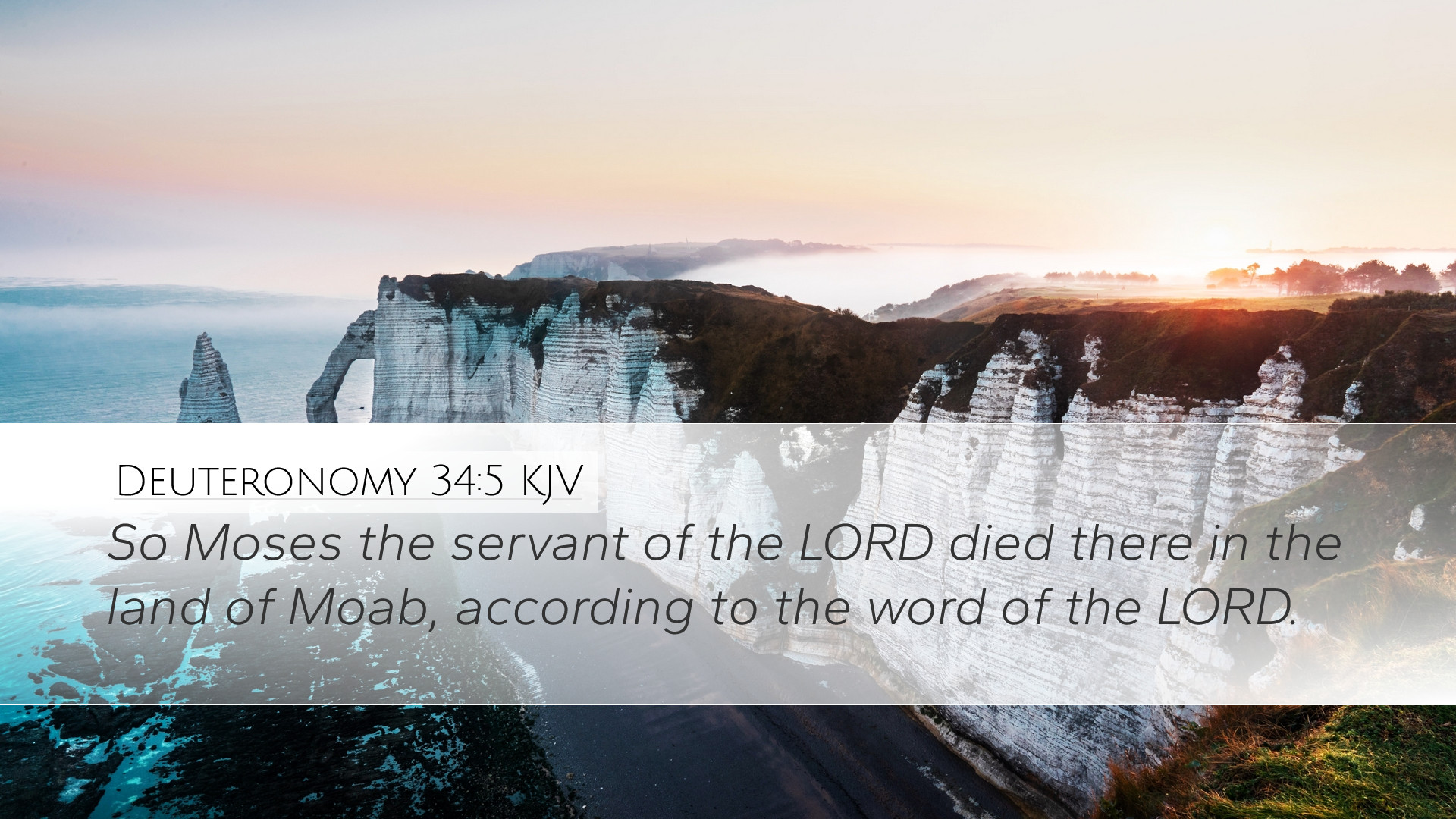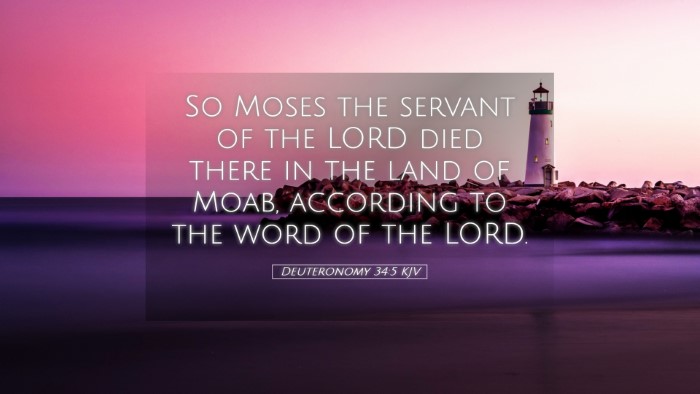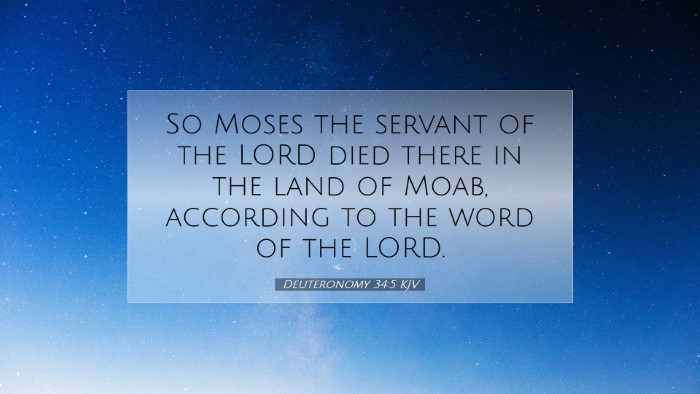Commentary on Deuteronomy 34:5
Deuteronomy 34:5 states: "So Moses the servant of the Lord died there in the land of Moab, according to the word of the Lord." This significant verse marks the culmination of Moses' life and his unique relationship with God. The context of this verse provides profound insights on leadership, divine purpose, and the faithfulness of God.
Overview of the Context
This verse comes at the conclusion of the Pentateuch, encapsulating the life of Moses who was chosen by God to lead the Israelites out of Egypt and through the wilderness toward the Promised Land. As scholars like Matthew Henry and Albert Barnes elucidate, it signifies not only the end of an era but also the fulfillment of God’s promise regarding Moses' journey.
Moses as the Servant of the Lord
In the phrase "Moses the servant of the Lord", we see a title of profound honor. This designation reflects not just Moses' role but also his character and commitment. Adam Clarke elaborates that this servitude points to Moses' utmost dedication to God’s commands and the welfare of the people he led. His entire ministry was characterized by humility and obedience, which is a model for all leaders in faith.
The Significance of Death in Moab
Moses' death in Moab, as highlighted by both Albert Barnes and Matthew Henry, is steeped in theological meaning. It underscores the idea that while Moses led the Israelites to the verge of their promised inheritance, he himself was not permitted to enter. This reflects the justice of God, demonstrating that even the most faithful servants can face the consequences of their actions. Furthermore, it sets the stage for the transition to a new leadership under Joshua.
According to the Word of the Lord
The phrase "according to the word of the Lord" brings forth several dimensions of understanding. Notably, it stresses the sovereignty of God in the affairs of humanity. Matthew Henry emphasizes that this act of God was preordained; God had foreseen and decreed it. This assertion champions a view of divine providence where God is intimately involved in planning human destiny.
This also calls for reflection on God’s promises and His truths which often come with conditions (for instance, Moses' disobedience at Meribah). Adam Clarke suggests that believers ought to take this as a solemn reminder that our actions bear consequences, even for those deeply loved by God.
Moses’ Legacy
Despite Moses' failure to enter the Promised Land, his legacy endures. He is remembered not only for his leadership but for his faithfulness in communicating God's law and covenant to Israel. Albert Barnes notes that through Moses, a comprehensive framework of laws was established which would guide the Israelite community for generations to come. His prophetic role and the establishment of the covenant articulate a significant part of the biblical narrative, affirming that his life's work was foundational for what was to come.
Lessons for Today's Leaders
Moses' story offers invaluable lessons for pastors, theologians, and leaders today. Here are some key takeaways:
- Humility in Leadership: Like Moses, leaders should serve with humility and a heart rooted in God's purposes.
- Faithfulness to God’s Calling: The commitment to God's word, even amid personal trials, is vital. As seen in Moses' life, faithfulness often precedes visible outcomes.
- Acceptance of God’s Will: Understanding that God’s plans may differ from our own aspirations is crucial. Moses' acceptance of his fate demonstrates a deep trust in God's greater plan.
- Mentorship and Succession: Moses' spiritual preparation of Joshua highlights the importance of succession planning in leadership. Investing in others ensures continuity of mission and purpose.
Final Thoughts
As we reflect on Deuteronomy 34:5, the farewell of Moses is not merely an end; it signals a new beginning for Israel. His life and death illuminate the themes of faithfulness, obedience, and the fulfillment of God’s promises. The lasting legacy of Moses invites current leaders in faith to faithfully serve, maintaining a clear vision and commitment to follow God’s path.


